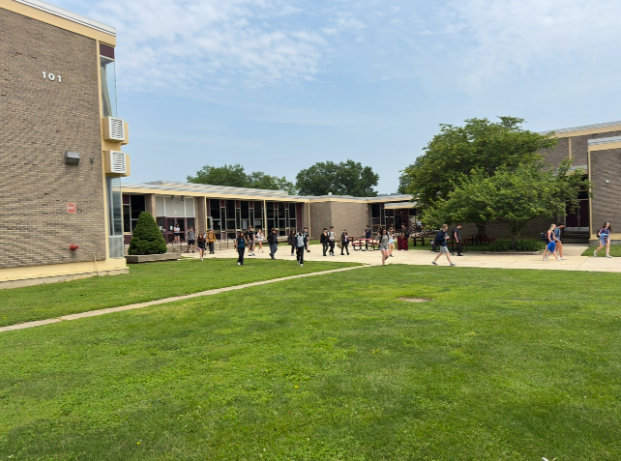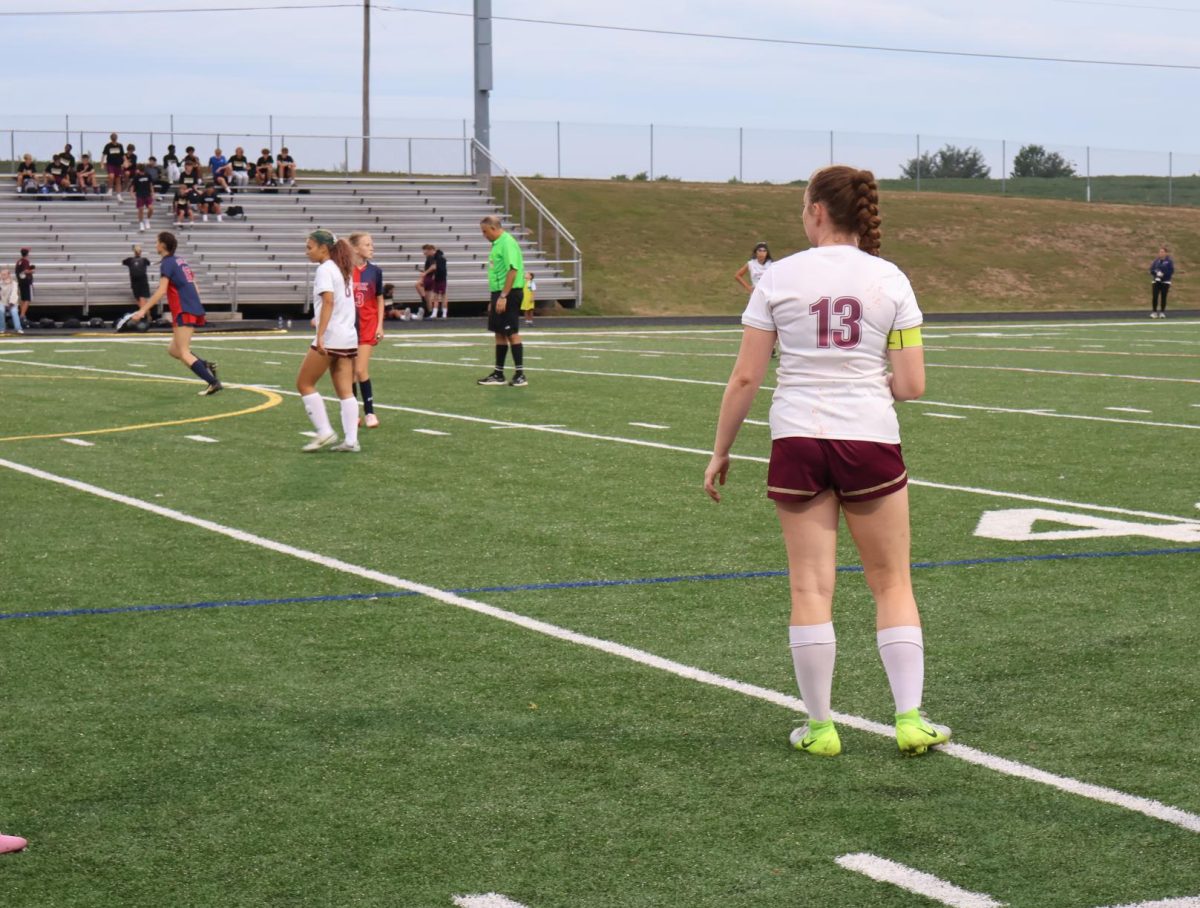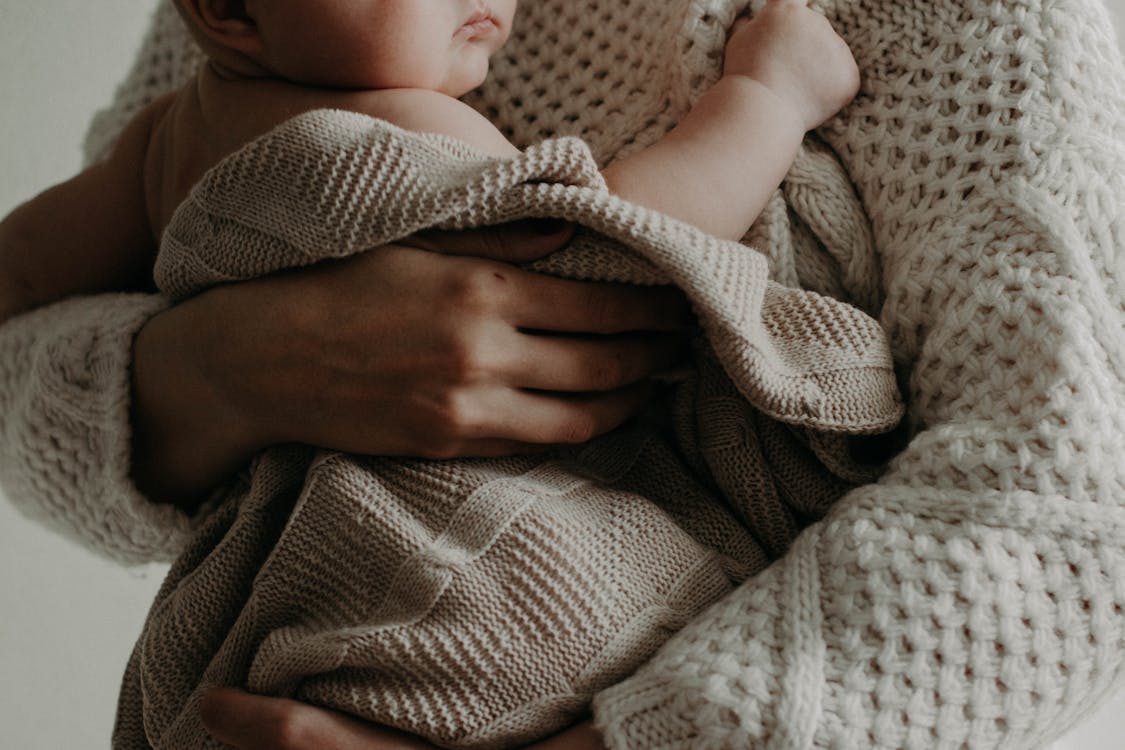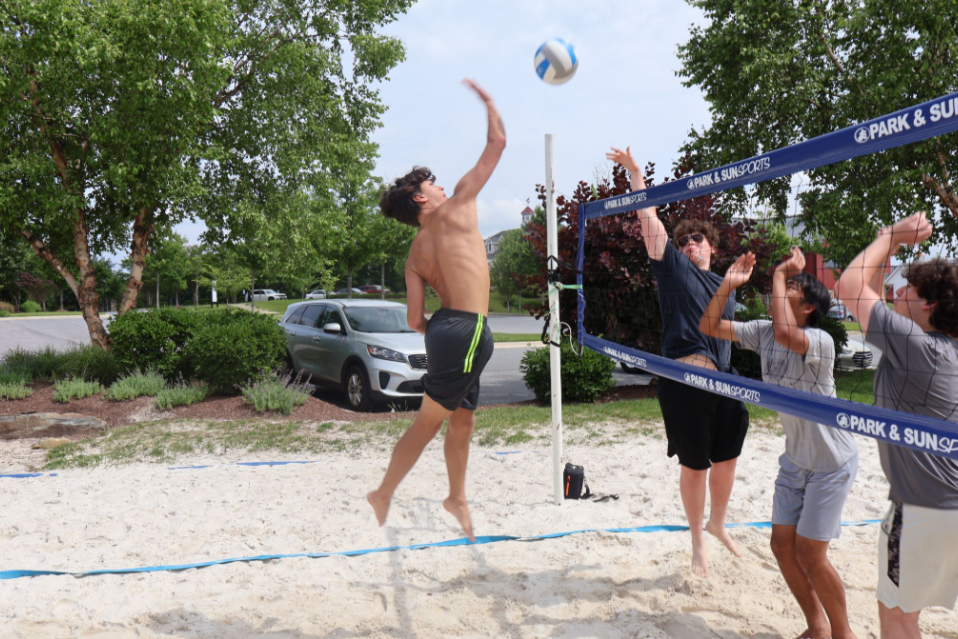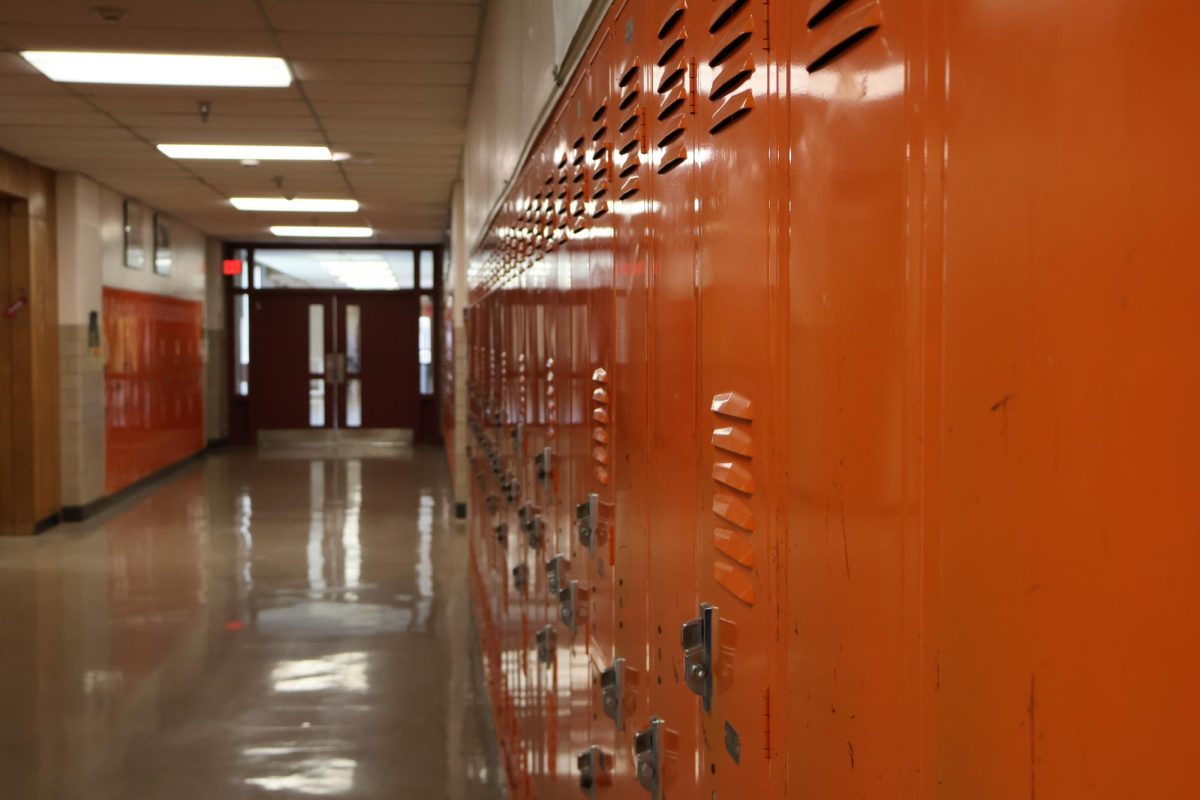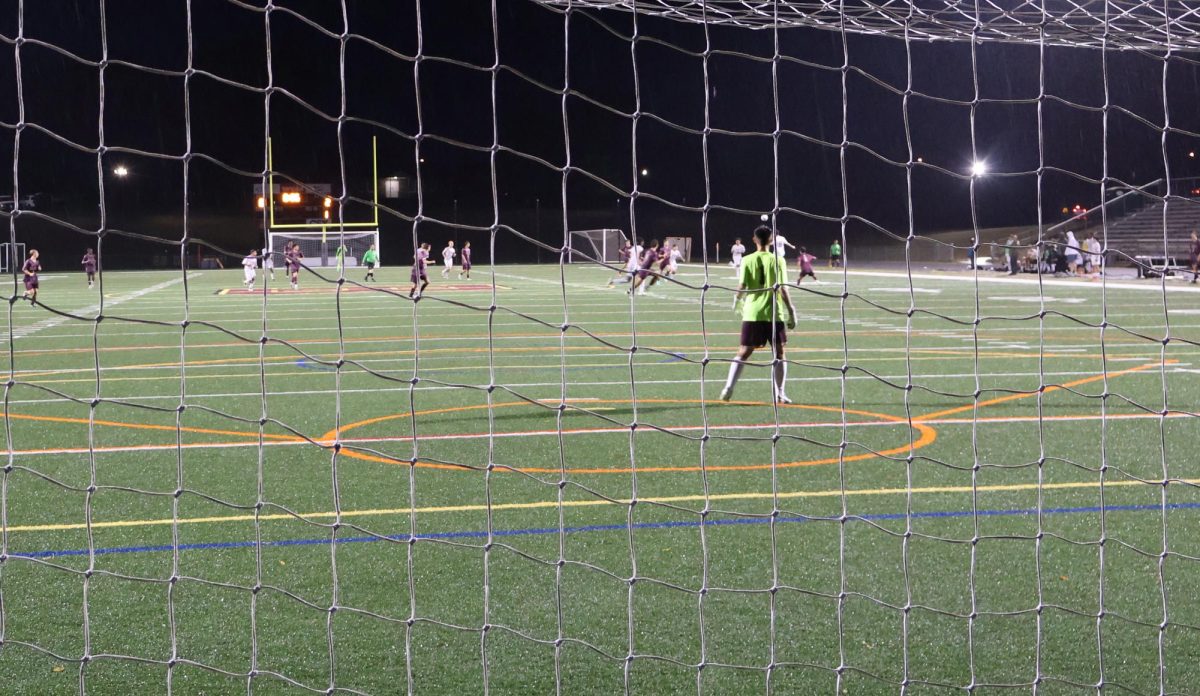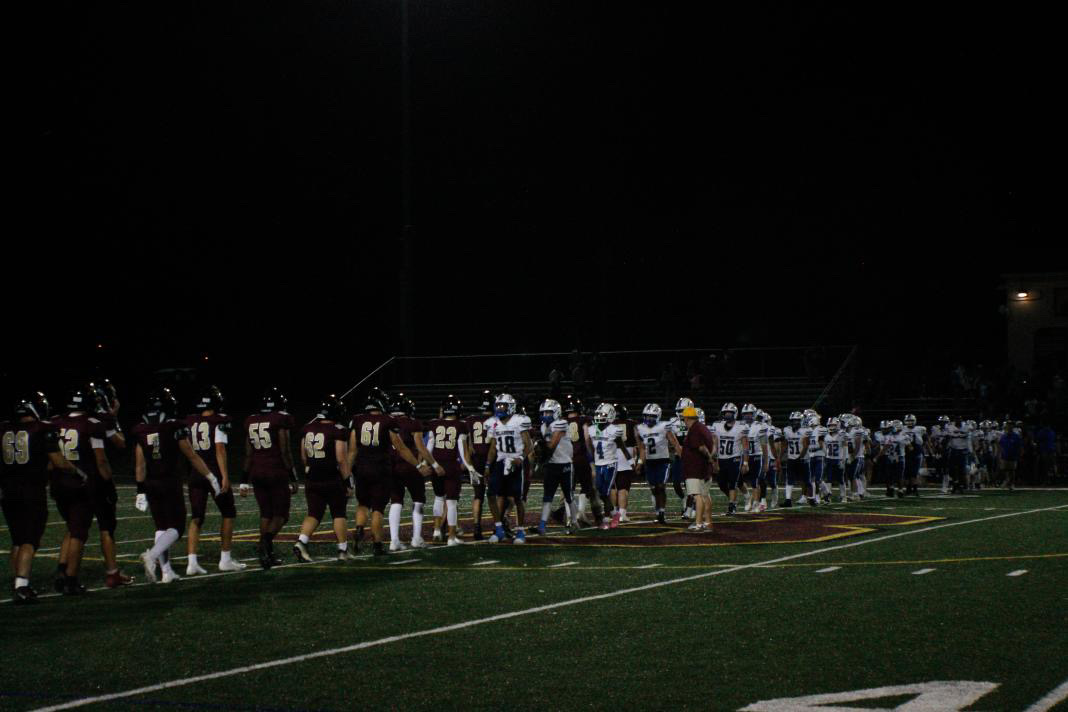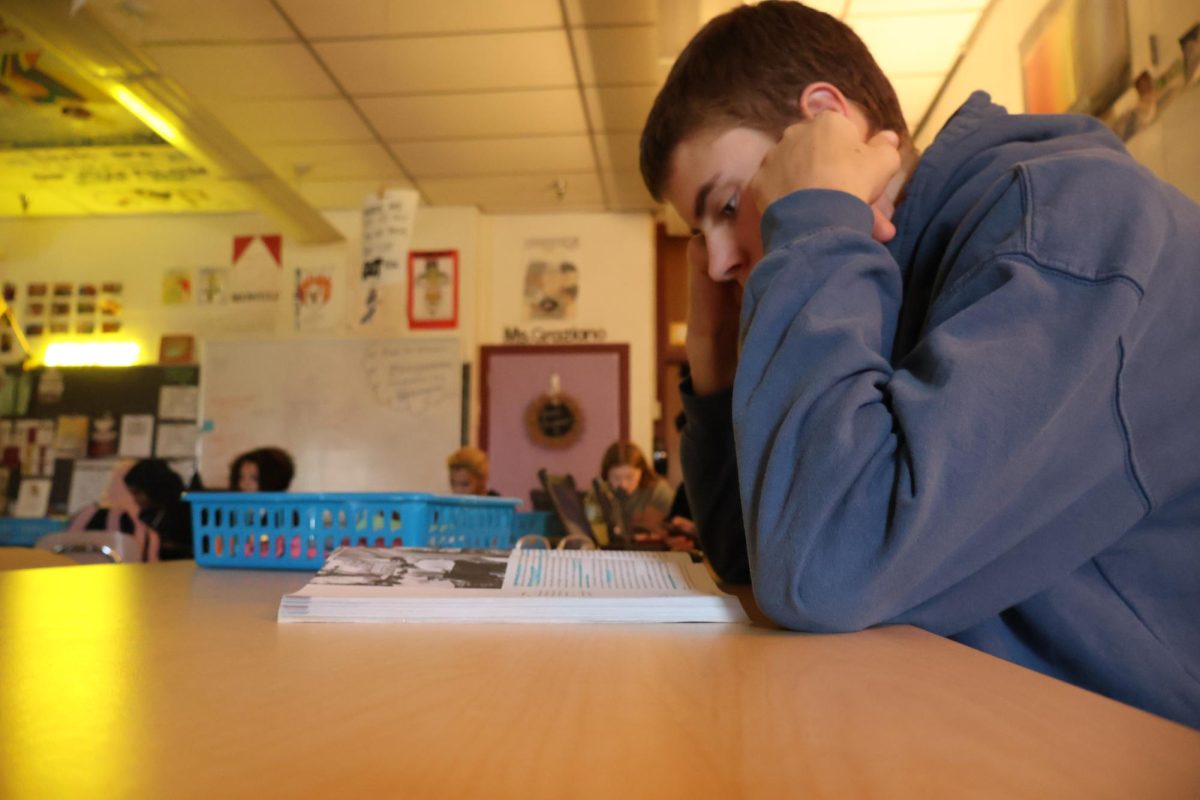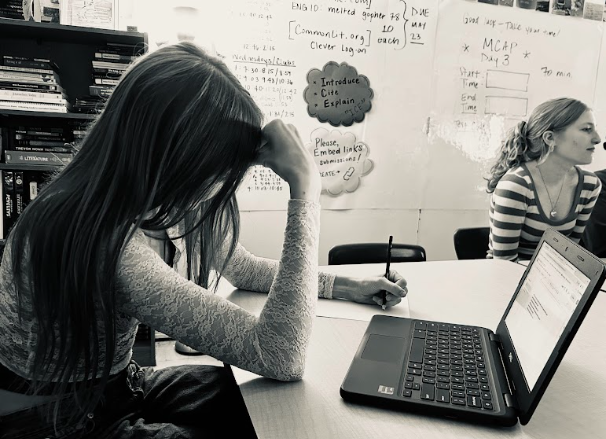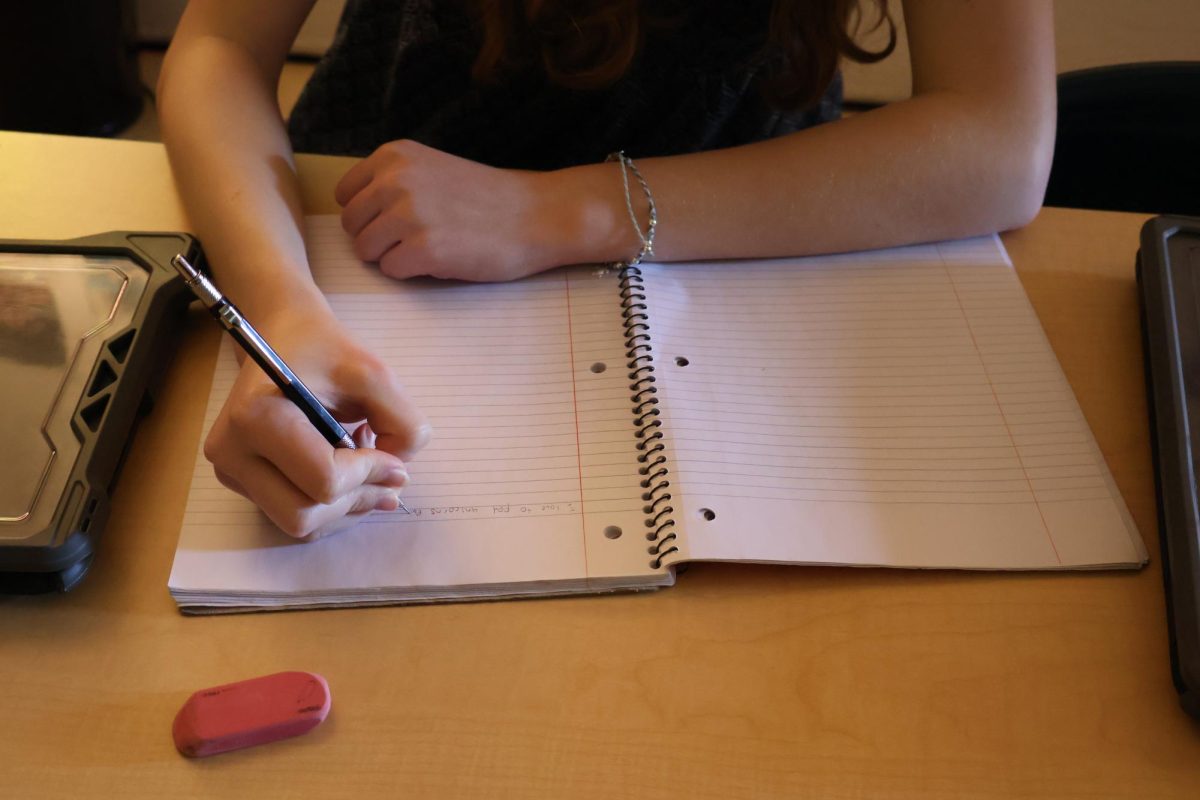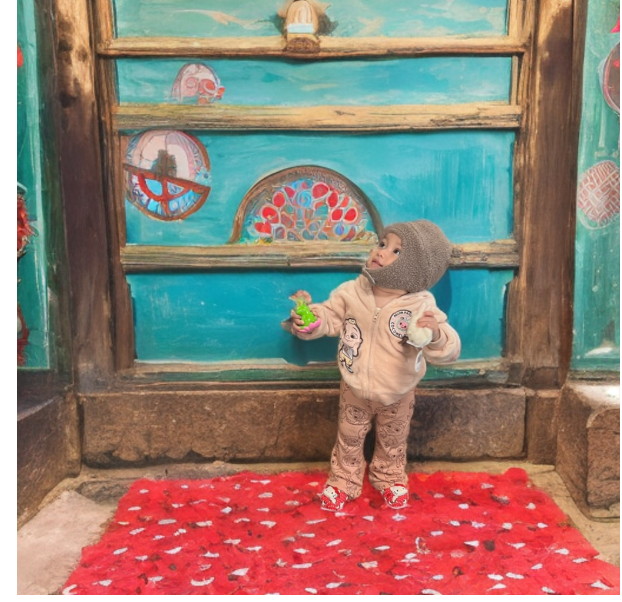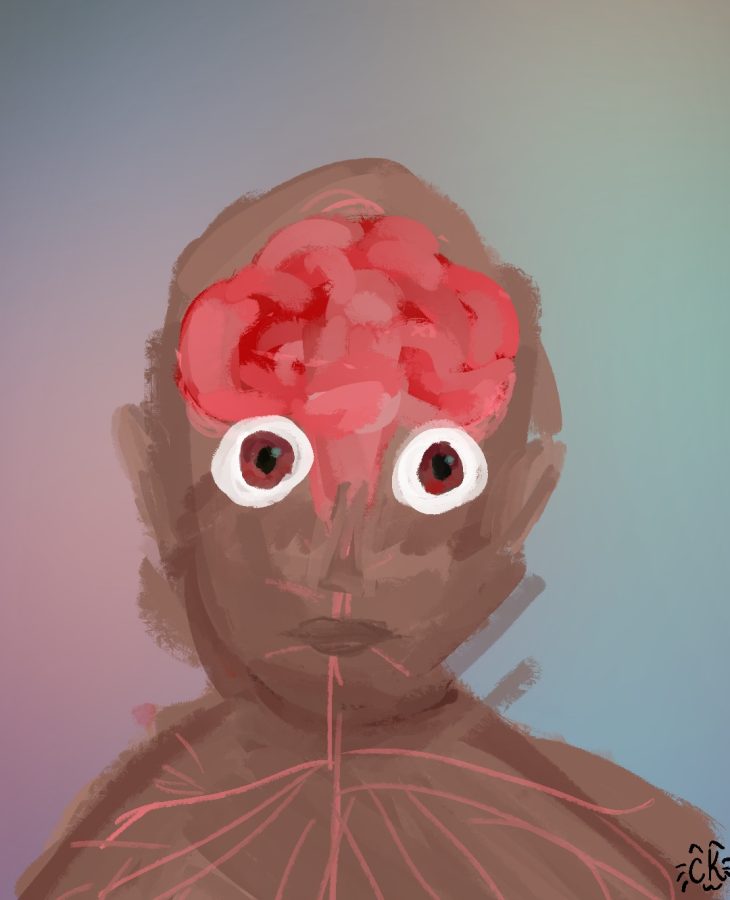The Importance Of Sleep
How Sleep Effects You In School
Artwork by Elizabeth Bailey
Sleep is important in our lives—it must be, seeing we spend so much time performing the action and hear so often how much sleep we should get. If we don’t sleep well during the week, we try to catch up on sleep on the weekend or try to sleep in. Without sleep we feel grumpy, and we are tired, slowly losing our lethargic attitude as the day progresses. Sometimes we decide to stay up all night, to do work, to have fun, either way we then forgo sleep. It may seem like a little grievance with no real consequence, but it can majorly affect your future health if you miss sleep regularly, especially during these key growth years.
Whether we are asleep or awake is decided by chemicals that are called neurotransmitters. They control this by acting on different groups of nerve cells, or neurons, in the brain. When we are awake, neurons in the brainstem produce other neurotransmitters such as serotonin and norepinephrine, keeping parts of the brain active. When we begin falling asleep other neurons that are at the base of the brain signal so. Part of this process is controlled by an internal “clock” of sorts, functioning on a 24-hour cycle known as the circadian rhythm. It controls when you feel tired and when you will feel refreshed and alert, regulating your sleep cycle. After you wake you should become more tired throughout the day, these feelings peaking in the evening. This can also be referred to as sleep-wake homeostasis. This is possibly linked to adenosine, which is an organic compound that is produced in the brain. The levels of adenosine in your body increase throughout the day and are broken down during sleep. They are thought to be tied to the feeling of drowsiness.
As we grow older the recommended amount of sleep changes. The Sleep Foundation gave daily sleep recommendations based on age:
- Newborns recommended—14 to 17 hours
- Infants—12 to 15 hours
- Preschool-aged children—10 to 13
- School-aged children—9 to 11 hours
- Teens—8 to 10 hours
- Older Teens and up are recommended—7 to 9 hours
- Ages of 65 and over—7 to 8 hours of recommended sleep
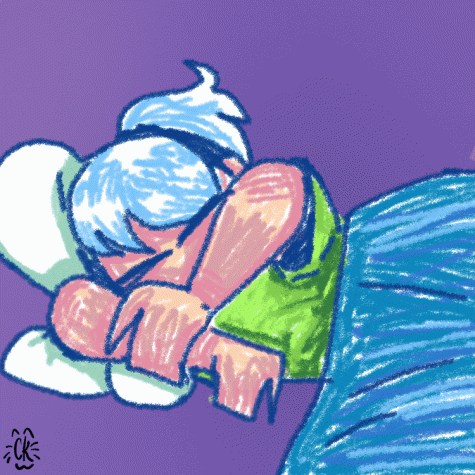
If we do not get an appropriate amount of sleep regularly, it can cause memory loss and increase the risk of dementia later on in life. A study performed by researchers at Harvard Medical School studies over 2,800 individuals who were ages 65 and up to examine the relation between their reports of amount of sleep in 2013 or 2014, and then their development of dementia or otherwise death five years in the future. The Harvard Health Blog states, “Researchers found that individuals who slept fewer than five hours per night were twice as likely to develop dementia, and twice as likely to die, compared to those who slept six to eight hours per night.” A second study that was conducted in Europe, in areas such as France, the UK, the Netherlands and Finland, data was examined from almost 8,000 participants and it was found that “…consistently sleeping six hours or less at age 50, 60, and 70 was associated with a 30% increase in dementia risk compared to a normal sleep duration of seven hours.” They also noted that the mean age of dementia diagnosis was that of 77 years.
It has also been found that sleep is linked with mental health. Sleeping problems can often be found in those with mental disorders like depression or schizophrenia. For those with depression, though, sleep deprivation can be a friend or a foe. The Sleep Association states, “The amount of sleep a person gets also strongly influences the symptoms of mental disorders. Sleep deprivation is an effective therapy for people with certain types of depression, while it can actually cause depression in other people.” Sleep deprivation, though helpful in some cases, can be very harmful if done continuously. The Sleep Association elaborates on the dangers of sleep deprivation: “Extreme sleep deprivation can lead to a seemingly psychotic state of paranoia and hallucinations in otherwise healthy people, and disrupted sleep can trigger episodes of mania (agitation and hyperactivity) in people with manic depression.” It really tells how sleep is necessary, especially for those with mental issues.

Now, with this information, we come to a student survey that has been conducted within BHS. This survey is specifically meant to ask about the sleep of students and see how it affects their performance in school.
After opening the poll and advertising it in multiple classes, the number of responses reached 106 on 2/9/22. Before this, though, it stagnated at 82 for a period of time, during which observations were made on individual data. The data that will be focused on spans a total of 80 student responses. Among these students, 12 got 4 or less hours of sleep and 34 got 5-6 hours or 7-9 hours respectively.
*[If you wish to take the poll, click HERE]*
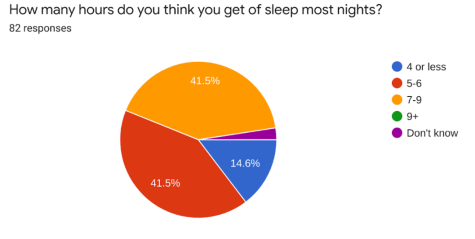
After looking at this we can delve into individual data for all students.
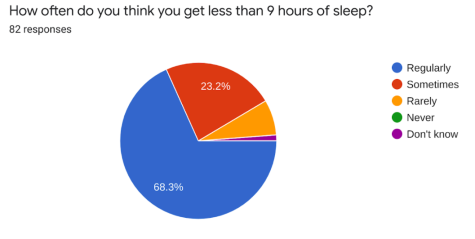
“How often do you think you get less than 9 hours of sleep?”
9 of the 12 students who slept 4 or less hours thought they regularly got less than 9 hours of sleep (75%), 2 thought they got less than 9 hours sometimes (16.67%), and 1 thought they got less than 9 hours rarely (8.33%).
25 of the 34 students who slept 5-6 hours thought they regularly got less than 9 hours of sleep (73.53%), 7 thought they got less than 9 hours sometimes (20.59%), and 2 thought they got less than 9 hours rarely (5.89%).
22 of the 34 students who slept 7-9 hours thought they regularly got less than 9 hours of sleep (64.71%), 10 thought they got less than 9 hours sometimes (29.41%), and 3 thought they got less than 9 hours rarely. (8.82%)
“Do you think you get a healthy amount of sleep?”
1 of the 12 students who slept 4 or less hours thought they got a healthy amount of sleep (8.33%), 7 thought they did not (58.33%), and 4 were unsure (33.33%).
3 of the 34 students who slept 5-6 hours thought they got a healthy amount of sleep (8.82%), 20 thought they did not (58.82%), and 11 were unsure (32.35%).
20 of the 34 students who slept 7-9 hours thought they got a healthy amount of sleep (58.82%), 4 thought they did not (11.76%), and 11 were unsure (32.35%).
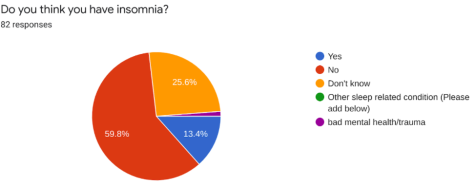
“Do you think you have insomnia?”
3 of the 12 students who slept 4 or less hours thought they had insomnia (25%), 2 thought they did not (16.67%), and 7 did not know (58.33%).
7 of the 34 students who slept 5-6 hours thought they had insomnia (20.59%), 19 thought they did not (55.88%), 7 did not know (20.59%), and 1 had another condition impacting sleep (2.94%).
2 of the 34 students who slept 7-9 hours thought they had insomnia (5.88%), 28 thought they did not (82.35%), and 5 did not know (14.71%).
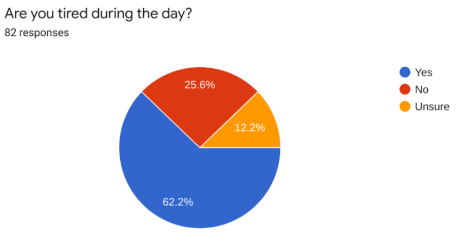
“Are you tired during the day?”
7 of the 12 students who slept 4 or less hours felt tired during the day (58.33%), 1 did not feel tired (8.33%), and 4 did not know (33.33%).
27 of the 34 students who slept 5-6 hours felt tired during the day (79.41%), 5 did not feel tired (14.71%), and 2 did not know (5.88%).
15 of the 34 students who slept 7-9 hours felt tired during the day (44.12%), 15 did not feel tired (44.12%), and 4 did not know (11.76%).
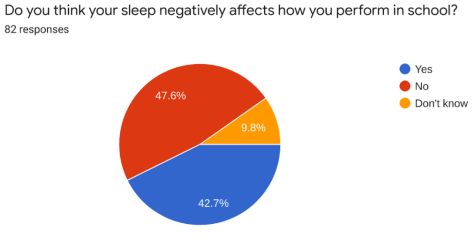
“Do you think your sleep negatively affects how you perform in school?”
4 of the 12 students who slept 4 or less hours thought their sleep negatively affected their performance in school (33.33%), 8 thought it did not (66.67%).
19 of the 34 students who slept 5-6 hours thought their sleep negatively affected their performance in school (55.88%), 11 thought it did not (32.35%), and 4 did not know (11.76%).
11 of the 34 students who slept 7-9 hours thought their sleep negatively affected their performance in school (32.35%), 19 thought it did not (55.88%), and 4 did not know (11.76%).
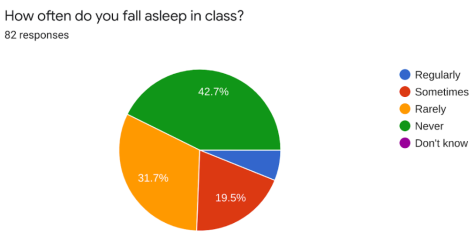
“How often do you fall asleep in class?”
2 of the 12 students who slept 4 or less hours fell asleep regularly in their classes (16.67%), 1 fell asleep sometimes (8.33%), 4 rarely (33.33%), and 5 never (41.67%).
3 of the 34 students who slept 5-6 hours fell asleep regularly in their classes (8.82%), 7 fell asleep sometimes (20.59%), 12 rarely (35.29%), and 12 never (35.29%).
None of the 34 students who slept 7-9 hours fell asleep regularly in their classes, 7 fell asleep sometimes (20.59%), 10 rarely (29.41%), and 17 never (50%).
Looking at this, it is shown that it was less likely for those with 7-9 hours of sleep to be tired during the day or fall asleep in class than those with less sleep. They also had more belief in the healthiness of their sleep and that their sleep did not impact their performance in school. As the amount of sleep went lower, it was the opposite effect, where there was more belief that the amount of sleep was unhealthy, more tiredness during the day, and more students falling asleep in their classes.This backs up the idea that the more sleep you get the less tired you will be, and the better you will feel.
What does this information make you think? Do you think that there are connections between the amount of sleep you receive and how tired you feel, how you perform? I would hope that it does, after receiving clear evidence of a possibility of a connection in the poll results above.
Now then, settle down and get some sleep. You just might regret it if you don’t!
Further Sleep Research and References:
https://www.nhlbi.nih.gov/health-topics/sleep-deprivation-and-deficiency
https://www.verywellhealth.com/why-you-should-never-regret-a-good-night-s-sleep-5088198
Your donation will support the student journalists of Brunswick High School. Your contribution will allow us to purchase equipment. We're a small program with little resources. Our goal is to purchase some updated, and much needed, cameras for the program.

